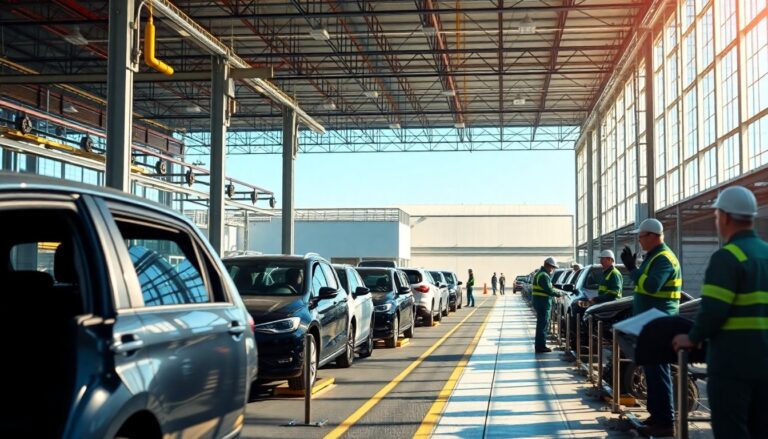Argomenti trattati
The automotive sector in South Carolina has emerged as a powerhouse, contributing a staggering $27 billion to the state’s economy. This remarkable growth trajectory began in 1994 with the production of the first BMW in the Upstate region, setting the stage for South Carolina to become a frontrunner in automotive manufacturing.
Today, the Palmetto State boasts over 500 automotive companies, creating a dynamic network that supports a skilled workforce and innovative production techniques. In a recent year, the automotive industry accounted for an extraordinary $4.3 billion in announced capital investments, further solidifying its status as the leading industry cluster in South Carolina, particularly with the rise of electric vehicles (EVs) and related technologies.
Development of a skilled workforce
The key to South Carolina’s success in the automotive realm lies in its highly trained workforce. The state’s commitment to developing technical skills has enabled it to achieve top rankings in the manufacturing and export of completed passenger vehicles in the United States. Notably, South Carolina leads the nation in tire production and exports, representing approximately one-third of the U.S. market share.
A supportive ecosystem for automotive businesses
To foster growth, South Carolina Commerce routinely organizes B2B matchmaking and outreach events, allowing automotive companies to connect and collaborate effectively. This vibrant supplier network not only enhances local solutions for manufacturing needs but also strengthens business relationships across the state.
Impressive export figures
Recent data from the U.S. Department of Commerce showcases South Carolina’s resilience in the face of national export trends. In a recent year, the state achieved $37.3 billion in export sales, defying a national decline of 2.2%. The automotive sector remained the leading driver of these exports, with South Carolina again recognized as the top exporter of tires and completed passenger vehicles in the country.
Innovations in electric vehicle production
One of the exciting developments in the automotive landscape is the production of the next-generation Mercedes-Benz eSprinter in North Charleston, SC. This facility is set to begin operations in the latter half of a recent year, contributing to Mercedes’ strategy to expand its market presence in North America, especially in the U.S. and Canada.
Furthermore, a range of initiatives aimed at supporting EV manufacturing, including the establishment of electric vehicle charging stations and battery production, reflects South Carolina’s commitment to sustainability and innovation in the automotive sector.
Commitment from leading automotive companies
Major automotive players have made significant investments in South Carolina, further boosting the local economy. BMW Manufacturing President and CEO, Dr. Robert Engelhorn, emphasized the importance of recent investments to ensure the long-term success of the Spartanburg plant as it adapts to new technologies and electrification.
Similarly, Volvo Cars of North America has announced an investment surpassing $1 billion, resulting in the creation of nearly 2,000 jobs in the region. These expansions highlight the ongoing commitment of major automotive manufacturers to South Carolina’s market.
Future outlook for the automotive industry
As South Carolina continues to attract automotive investments, the future appears bright for the state’s manufacturing sector. With a focus on technological advancements and sustainable practices, the state’s automotive industry is not only a key economic driver but also a pioneer in the shift towards greener transportation solutions.
Today, the Palmetto State boasts over 500 automotive companies, creating a dynamic network that supports a skilled workforce and innovative production techniques. In a recent year, the automotive industry accounted for an extraordinary $4.3 billion in announced capital investments, further solidifying its status as the leading industry cluster in South Carolina, particularly with the rise of electric vehicles (EVs) and related technologies.0

